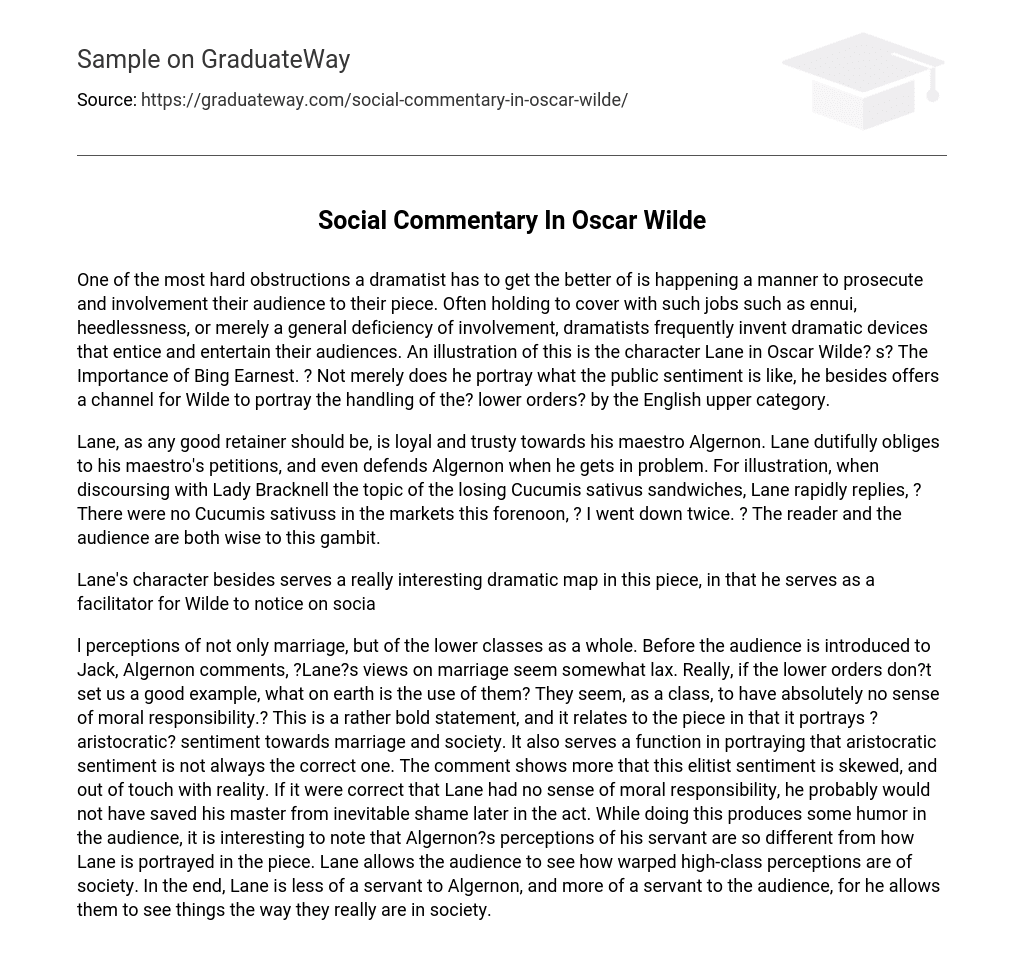One of the most hard obstructions a dramatist has to get the better of is happening a manner to prosecute and involvement their audience to their piece. Often holding to cover with such jobs such as ennui, heedlessness, or merely a general deficiency of involvement, dramatists frequently invent dramatic devices that entice and entertain their audiences. An illustration of this is the character Lane in Oscar Wilde? s? The Importance of Bing Earnest. ? Not merely does he portray what the public sentiment is like, he besides offers a channel for Wilde to portray the handling of the? lower orders? by the English upper category.
Lane, as any good retainer should be, is loyal and trusty towards his maestro Algernon. Lane dutifully obliges to his maestro’s petitions, and even defends Algernon when he gets in problem. For illustration, when discoursing with Lady Bracknell the topic of the losing Cucumis sativus sandwiches, Lane rapidly replies, ? There were no Cucumis sativuss in the markets this forenoon, ? I went down twice. ? The reader and the audience are both wise to this gambit.
Lane’s character besides serves a really interesting dramatic map in this piece, in that he serves as a facilitator for Wilde to notice on socia
l perceptions of not only marriage, but of the lower classes as a whole. Before the audience is introduced to Jack, Algernon comments, ?Lane?s views on marriage seem somewhat lax. Really, if the lower orders don?t set us a good example, what on earth is the use of them? They seem, as a class, to have absolutely no sense of moral responsibility.? This is a rather bold statement, and it relates to the piece in that it portrays ?aristocratic? sentiment towards marriage and society. It also serves a function in portraying that aristocratic sentiment is not always the correct one. The comment shows more that this elitist sentiment is skewed, and out of touch with reality. If it were correct that Lane had no sense of moral responsibility, he probably would not have saved his master from inevitable shame later in the act. While doing this produces some humor in the audience, it is interesting to note that Algernon?s perceptions of his servant are so different from how Lane is portrayed in the piece. Lane allows the audience to see how warped high-class perceptions are of society. In the end, Lane is less of a servant to Algernon, and more of a servant to the audience, for he allows them to see things the way they really are in society.





